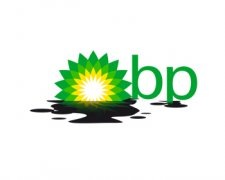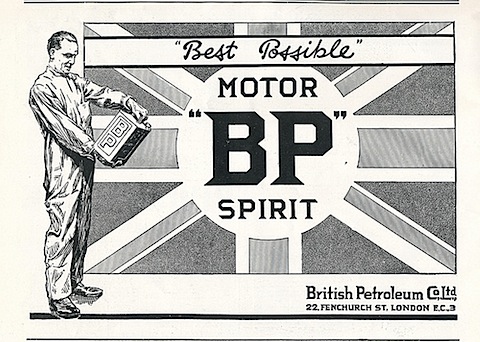Some people actually believe(d) that BP was making an authentic effort to move “Beyond Petroleum”.
I was quite surprised to discover this early in June, in conversation with an organizational change consultant who specializes is sustainability change.
 This consultant explained that, in contrast to other energy companies that he had worked with, BP was making progress towards becoming more sustainable in its day to day processes. He also believed that BP was making a significant (enough) financial investment in developing alternative energy sources. He’d actually seen changes in BP’s procedures, and mentioned a few actions that BP had taken over the past 5 years or so that demonstrated to him that their commitment to alternative energy was authentic.
This consultant explained that, in contrast to other energy companies that he had worked with, BP was making progress towards becoming more sustainable in its day to day processes. He also believed that BP was making a significant (enough) financial investment in developing alternative energy sources. He’d actually seen changes in BP’s procedures, and mentioned a few actions that BP had taken over the past 5 years or so that demonstrated to him that their commitment to alternative energy was authentic.
Really?
Even before the current Oil Spill confirmed people’s worst fears about the company’s lack of commitment to sustainability, worker safety and environmental safeguards, BP was a poster child for the concept of greenwashing. Everything from the language in their advertisements to the imagery of their revised logo, put a waxy organic gloss over the corporation’s activities. Some people actually believed the hype.
But they didn’t believe the hype because they were fools, or because BP was inordinately clever with its PR. They believed the hype because they saw actions that, to them, seemed to demonstrate that changes were underway.
The Ambiguities of Change
Many of us have found ourselves mired in similar ambiguity during organizational change processes. We hear the organization’s leaders claiming that ‘change is important’. We see the organization’s leaders putting the change issue on the agenda, budgeting money for it, and sending employees to workshops. We hear individual managers (sometimes our own managers, and sometimes even ourselves) talking up the changes ahead, reiterating that the organization is committed. And, we see others and ourselves taking some basic steps towards the new direction.
We also see managers contradicting themselves. We watch leaders continue ‘business as usual’. We even see demonstration projects go underfunded and under-supported, because other goals get in the way. So at the same time that we see evidence of change, we also see evidence of no change.
It’s enough make you feel betrayed, or simply foolish. 
The Gap between Claims and Actions
Often, the biggest indicator of hypocrisy in the organization is the gap between the organization’s claims about who it wants to be, and its actions in the here and now. When the organization does not do what it says it’s going to do, or does not demonstrate what it claims is important, we know that their commitment to change is inauthentic.
Or is it?
The gap between what we say and what we do can demonstrate something other than hypocrisy. The gap can demonstrate learning.
BP: Caught in the act of learning?
In order to change, organizations have to act their way into new identities. We don’t get to show a little corporate advertising and then claim that -poof- the change has occurred. As we’re getting there, we’re taking new actions and also some old actions, demonstrating new ways of thinking while continuing to rely on old ways of thinking. We’re learning how to be the ‘new’ us.
Sometimes organizations don’t get far enough into the new kinds of actions before someone, or some situation, calls into question whether or not their intentions to change are real. If the organization’s intentions were real, wouldn’t the organization have more to show to support these claims?, we ask.
But if the change effort is relatively new, and/or relatively comprehensive, there may not be be enough action to legitimate these claims to change.
Moreover, it’s not that easy to become something new… not only do we have to change by moving away from old systems, behaviors, norms, etc. but also we have to create new ones. We don’t always know the best new systems or how to make them work, and so we have to experiment. We have to learn how to become the organizations that we want to become. And learning takes time.
We want to believe.

Organizational change efforts often ask us to contort our own sense making. We have to believe that these changes matter and that they can come true, in order to act effectively to bring these changes about. And, we have to do this when evidence all around us supports the alternative, that no change at all is changing.
At BP, somebody had to believe that BP could indeed move “Beyond Petroleum”. For any movement towards sustainability to occur, somebody– actually, several somebodies — at BP had to take some action(s) in spite of evidence all around them that BP would continue to extract instead of replenish.
I bet there are employees of BP who honestly believed that BP was changing. Not only the employees in the Alternative Energy Division, or the HR department, or the MarComms area, but regular rank and file employees. Across the 96,000 of them, some portion of them had to have believed.
Now, you’ve got to wonder how these employees feel. Gullible? Maybe. Ashamed? Possibly. Betrayed? You’d think so.
With BP, there is a chance that all of their talk about alternative energy and sustainability is just talk. There’s also the chance that, in some parts of the organization and among some employees, behavior was changing, new systems were being created, and new norms were being established, that would demonstrate real change towards sustainability and ‘beyond petroleum’.
You may say that it’s silly to ask whether whether “Beyond Petroleum” was pure hypocrisy or rather an effort to change that hadn’t gotten very far. What we can say is that BP’s actions over the last 9 weeks have pretty well demonstrated that the organization hasn’t learned much of anything at all about being more sustainable. Even as BP has moved to respond to the Oil Spill, its actions have compounded the harm to the environment.
But I don’t think that this is an either / or situation. BP may have been hypocritical and BP may have been learning how to be more sustainable.

That both/ and conclusion may reflect the reality of organizational change, but it doesn’t clean up the Gulf, restore the wetland habitats, or move us to renewable energy sources.
And, it doesn’t let BP as a corporation off the hook.
What it may do, however, is soften the sense of betrayal and gullibility that many BP employees rightly feel.
Some BP employees wanted to believe, they wanted to make a difference, they weren’t being hypocritical. They just hadn’t learned enough or changed things enough to make BP better.
See Also:
- Chris MacDonald, on The Business Ethics Blog: BP: Not Really “Beyond Petroleum,” Just Greenwash After All
- Rebecca Lefton, on ThinkProgress: BP’s Greenwashing Masked Dangerous ‘Drill, Baby, Drill’ Reality
- Mockulation ®: Regulating Wall Street Using the Psychology of Public Mockery
- Faking an Identity: How Inauthentic Organizations Dress Up
Images: Quartet of BP Sheilds from Worlds’BestLogos
1922 BP advert, Image by DominusVobiscum on Flickr
Oliver_p10’s entry at LogoMyWay
 I am an organizational consultant, change advocate, and organizational identity/reputation scholar with a PhD in leadership & organizations. I research, write about, and consult with organizations on the relationships between organizational identity, actions, and purpose. I teach Technology Management, part-time, at Stevens Institute of Technology.
My current research focuses on how social technologies in the workplace can drive organizational change, generate meaning, and catalyze purpose. See the
I am an organizational consultant, change advocate, and organizational identity/reputation scholar with a PhD in leadership & organizations. I research, write about, and consult with organizations on the relationships between organizational identity, actions, and purpose. I teach Technology Management, part-time, at Stevens Institute of Technology.
My current research focuses on how social technologies in the workplace can drive organizational change, generate meaning, and catalyze purpose. See the 
{ 7 comments }
Love the blog CV! You’re top of my “things that make you stop and think every day” list.
And as for BP, hey you gotta fail if you’re going to learn. So what have been the derailers for the CEO? A little aloofness in his PR, for sure; arrrogance overtaking the usual decisiveness and self-confidence, perhaps … ? The Gulf of Mexico spill is an unprecedented disaster and deeply regrettable from so many perspectives. But can BP refocus? Hell yes.
Nothing wrong with their passion and vision. And for me this is what authenticity is all about – alignment of words and actions. This requires both the will to make stuff happen and the capability to deliver it. To pay attention to the present with the right intention for the future. You do need both/and. And if the intention is good and the attention is focused, you can claim authenticity.
Yes, it is that simple. No one said it was easy though.
Jeremy, I love that quote!:
“If the intention is good and the attention is focused, you can claim authenticity.”
Using that simple guideline, it looks like BP fails the test.
For now.
Your comment also suggests that you have (and we should have?) some hope for BP. I wonder if there is a way that BP can redeem itself, not so much in the eyes of others but in the way it thinks about itself. Can it ever become a company that acts rightly? Hmmm.
Thanks so much for your comment- cv
Hi CV,
Thank your for this post. Your thoughts in this post are a great inspiration for developing a business case on strategic change & branding.
Mignon
Hi Mignon,
I’ve been thinking about you and your own expertise on authenticity and BP as this whole crisis continues. you were one of the first people I talked to about BP (years ago) who was willing to see their Beyond Petroleum effort as something both hopeful and hollow.
It’s interesting to revist these ideas, over a year ago! Reputation, Beyond Authenticity
Great post – frankly, i think that if you replace BP with any other oil company, everything you wrote here will still make perfect sense.
Gabriel, that’s a scary thought, but I think you’re right. I don’t mean to be completely cynical, but I think there is such a fundamental element of denial (denial about the earth, climate change, ecology, etc.) at the core of the petroleum industry that maybe ‘sustainability’ can never be authentic to organizations in this industry. cv
Wow this is a great resource.. I’m enjoying it.. good article
Comments on this entry are closed.
{ 1 trackback }